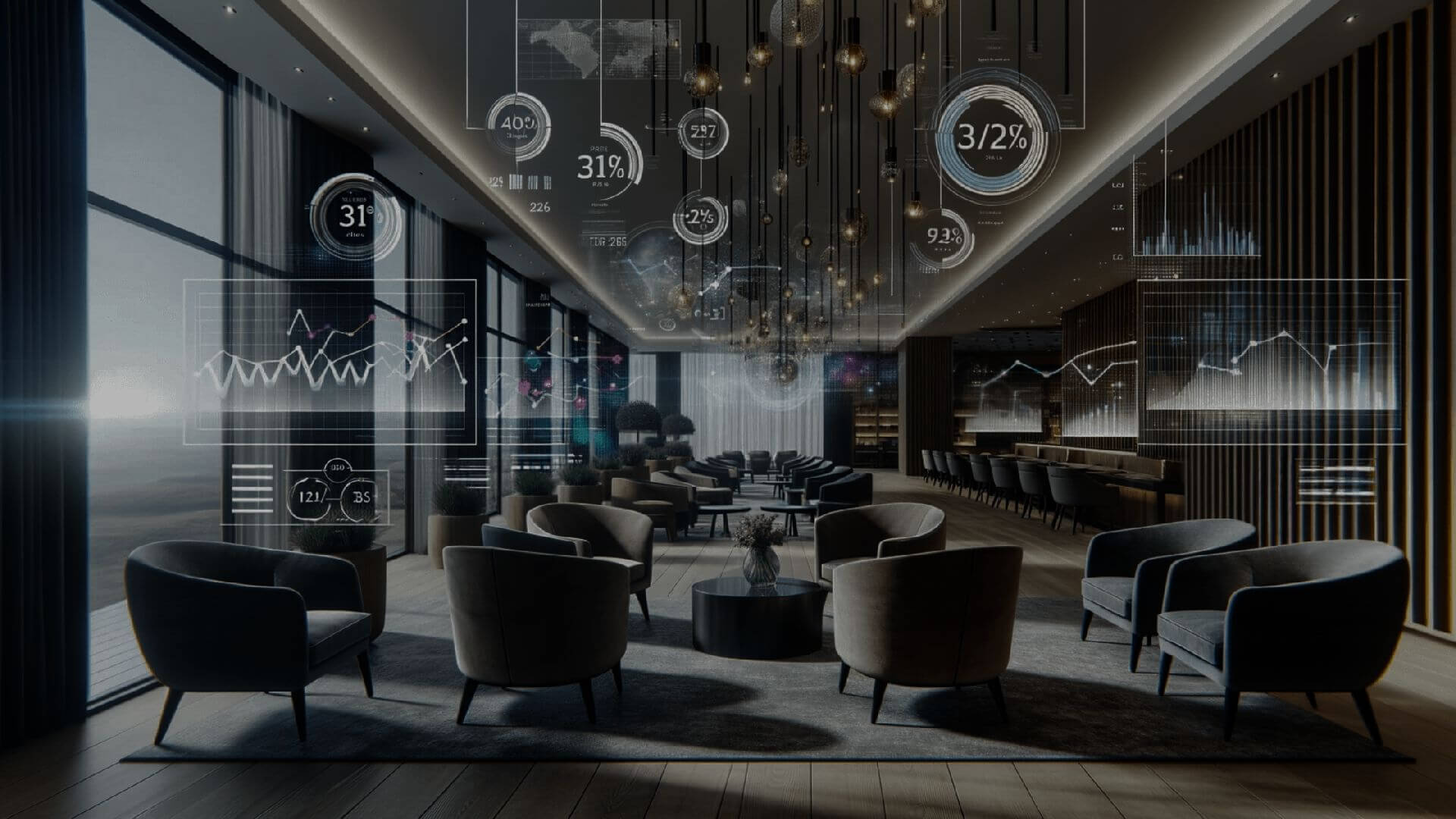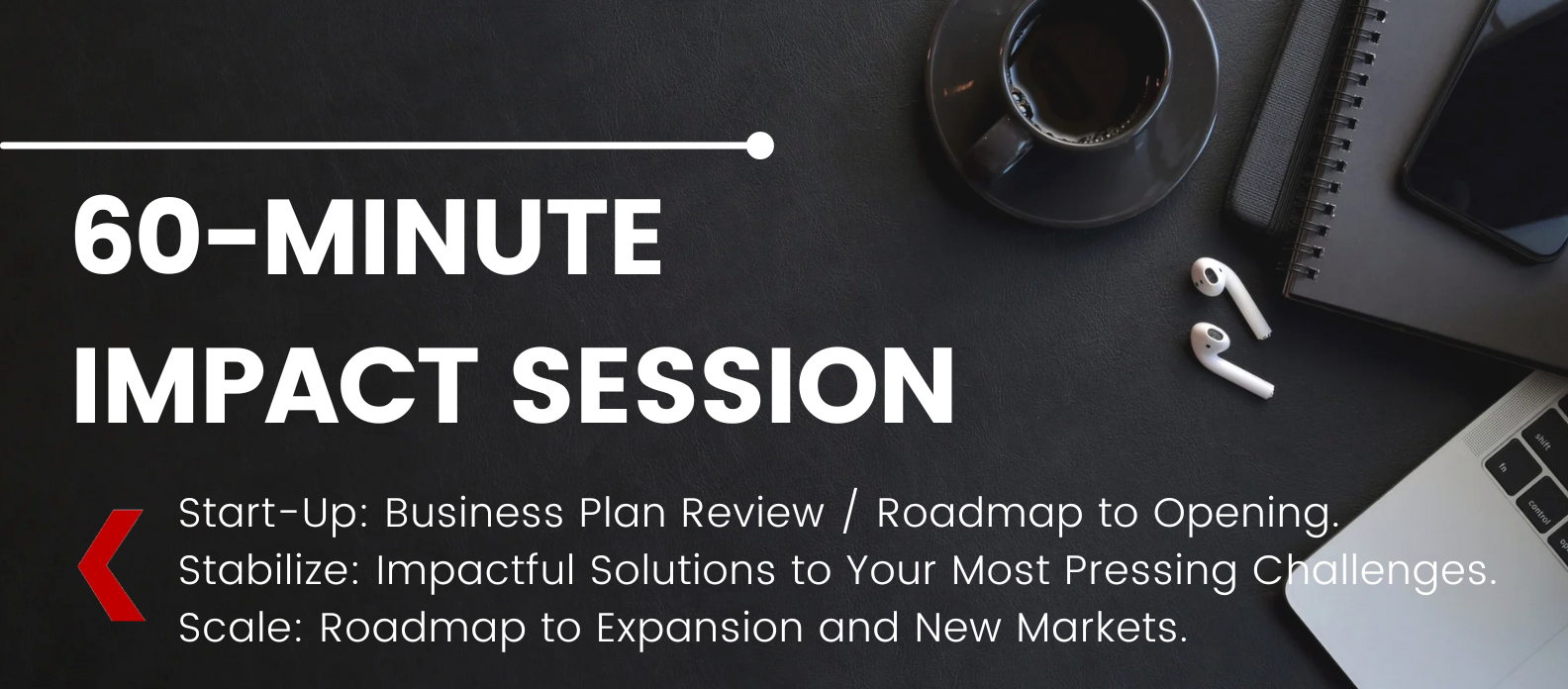Modern Day Revenue Management for Hotels
by Doug Radkey

Note: Image generated by artificial intelligence.
The landscape of hotel revenue management has evolved significantly in recent years, driven by both tech advancements and changing consumer behaviors.
With this in mind, I think now would be a good time to explore these current trends, tools, and strategies in hotel revenue management.
Below, I outline the importance of data analytics, dynamic pricing, and AI in maximizing revenue today, and as we move forward in this industry.
The Evolution of Revenue Management
In the early days of the hotel industry, revenue management was a relatively straightforward affair.
While the overall concept of revenue management originated in the airline industry in the 1980s, it was later adapted by hotels. Traditional practices relied primarily on static pricing models, where room rates were set based on the season, room type, and booking lead time. Rates were adjusted infrequently (often just a few times per year), and they were influenced mainly by historical data documented internally, and the intuition of revenue managers.
Hotels used simple tools such as spreadsheets and reservation logs to track bookings and manage their inventory. The focus was on achieving high occupancy rates rather than maximizing revenue per available room (RevPAR) and the other key metrics that we follow today.
Discounts and promotions were applied sporadically, without a deep understanding of market segments or consumer behavior, to help drive revenue during off-season periods. Group rates and corporate contracts were negotiated based on fixed rates, with little consideration for fluctuating market conditions.
From Static Pricing to Dynamic, Data-Driven Strategies
The transition from those early days to modern revenue management practices began in the late 1990s and early 2000s, driven by tech advancements and increased competition in the accommodation space.
The advent of online travel agencies (OTAs), real-time booking systems, and sophisticated data analytic tools transformed how hotels approached their pricing and inventory management.
So, what’s the modern approach?
- Data-Driven Decision Making: The incorporation of advanced data analytics revolutionized revenue management. Hotels began leveraging large datasets from various sources, such as reservation systems, customer relationship management (CRM) software, and market intelligence platforms. This data-driven approach enabled more accurate forecasting, segmentation, and pricing strategies. Revenue managers could now analyze booking patterns, guest preferences, and demand fluctuations to make informed decisions.
- Dynamic Pricing Models: Dynamic pricing involves adjusting room rates continuously based on real-time market demand, competitor pricing, and other external factors. This approach allows hotels to maximize revenue by selling the right room to the right guest at the right time and price. Dynamic pricing models consider various data points, including booking pace, market trends, weather, and special events, to optimize their recommended rates.
- Automation and Real-Time Adjustments: Modern revenue management systems (RMS) introduced automation, allowing hotels to implement real-time rate adjustments. These systems use algorithms and machine learning to analyze data and update rates across all distribution channels automatically. This automation minimizes manual errors, and ensures consistent pricing across platforms, enhancing the hotel’s ability to respond to market changes quickly.
- Focus on Total Revenue Management: While traditional revenue management focused primarily on room revenue, modern practices embrace a more holistic view known as total revenue management. This approach considers all revenue streams, including food and beverage, spa services, and other on-property offerings. By optimizing pricing and promotions across all areas, hotels can now maximize total revenue and profitability.
The Importance of Data Analytics
Data analytics involves the systematic analysis of data to uncover patterns, correlations, and trends that inform strategic decisions.
Sounds fairly important, right? In the hospitality industry, data analytics helps you understand market dynamics, predict demand, and tailor your hotel’s offering to meet guest needs. This level of analysis is paramount for developing effective revenue management strategies that maximize profitability.
One of the primary functions of data analytics in hotel revenue management is demand forecasting. By analyzing historical booking data, seasonal trends, and external factors such as local events, weather, or economic conditions, hotels can predict future demand accurately. This forecasting through data analytics enables hotels to adjust room rates more dynamically, optimize inventory allocation more efficiently, and implement targeted marketing campaigns that drive results.
Modern analytics platforms have revolutionized hotel revenue management by providing sophisticated tools for data analysis, strategic planning, and dynamic pricing. Atomize RMS stands out as a prime example of an advanced analytics tool that leverages data-driven decision-making to optimize hotel performance through dynamic pricing. This cloud-based revenue management system (RMS) uses sophisticated algorithms and machine learning to provide real-time pricing recommendations, as well as market insights.
Atomize enables hotels to make informed decisions based on real-time market conditions and predictive analytics by leveraging machine learning and big data. This data-driven approach leads to more precise pricing strategies, optimized inventory management, and improved profitability.
Moreover, the system’s ability to automate and streamline revenue management processes reduces the risk of human error, and frees up time for hotel staff to focus on other critical aspects of operations, such as providing a memorable guest experience, and elevating service quality.
The Role of Artificial Intelligence (AI)
Artificial Intelligence (AI) has further revolutionized the field of revenue management in the hotel industry, offering advanced capabilities that enhance both efficiency and profitability. Another AI-powered RMS provider is Duetto Cloud’s Game Changer, designed to analyze large datasets, identify patterns, and make real-time decisions.
One of the key capabilities of an AI-powered RMS is the automated pricing optimization. The system monitors market conditions continuously and adjusts room rates based on real-time data, with limited rules in the back-end. This dynamic pricing approach allows hotels to capitalize on fluctuations in demand, ensuring that they are charging the optimal rate at any given time.
These accurate forecasts can enable hotels to plan more effectively, manage inventory, and allocate resources more efficiently.
For example, AI can help predict when a hotel is likely to experience high demand and adjust staffing levels accordingly, ensuring optimal service quality. Additionally, accurate forecasting helps in identifying potential periods of low occupancy, allowing hotels to implement targeted marketing campaigns and promotional offers to boost bookings.
Beyond pricing and forecasting, AI-powered RMS can also enhance the guest experience through personalization. By analyzing guest data such as booking history, preferences, and feedback, AI systems can tailor offers and recommendations to individual guests.
For instance, an advanced RMS can identify a guest’s preference for specific room types, amenities, or dining options and use this information to provide personalized packages or upsell relevant services.
As AI technology continues to evolve, its role in revenue management is expected to grow, offering even more sophisticated capabilities and insights for hotels. Embracing AI-powered RMS now is going to be essential for hotel operators who are looking to compete and win in today’s fast-paced and data-driven market.
Integrating Revenue Management with Other Hotel Operations
As mentioned above, modern hotel revenue management is moving away from the siloed approach of focusing solely on room-based revenue. Increasingly, that outdated method is being replaced by a more holistic perspective that encompasses the entire guest experience.
This shift necessitates cross-department collaboration, aligning revenue management with sales, marketing, and operations to create cohesive strategies that optimize total revenue. Integrating efforts across departments means hotels can enhance their revenue streams and also provide a seamless and enriching experience for their guests.
To maximize total revenue, hotels must look beyond room revenue to optimize ancillary revenue streams, such as food and beverage (F&B), spa services, events, and so much more. This approach, known as total revenue management (TRM), involves a comprehensive strategy that considers all aspects of the guest experience.
For example, coordinating F&B with revenue management ensures that the on-property restaurant reservations and event bookings align with the hotel’s overall occupancy and pricing strategies.
The obvious and ultimate goal of cross-department collaboration is to enhance the guest journey and experience. Aligning efforts across revenue management, sales, marketing, and operations ensures hotels can create a seamless and personalized experience for their guests.
This can include personalized room amenities, customized dining options, and exclusive access to hotel facilities. Engaging with guests before, during, and after their stay through targeted communications and personalized offers can further enhance their experience and encourage repeat visits.
Looking Ahead
As you can see, modern hotel revenue management has become an intelligent discipline driven by data analytics, dynamic pricing, and artificial intelligence (AI). These elements are really becoming a non-negotiable for optimizing revenue, enhancing guest experiences, and maintaining a competitive edge.
Data analytics provides deep insights into market trends, guest behaviors, and demand patterns, enabling more accurate forecasting and strategic decision-making. Dynamic pricing, powered by real-time data and AI, allows hotel operators to adjust room rates fluidly, maximizing revenue by responding to market conditions.
AI further enhances revenue management through advanced capabilities such as predictive analytics and personalized guest services, all of which streamline operations and improve efficiency when integrated with other departments within your hotel.
Looking ahead, the future of hotel revenue management promises exciting innovations and trends. As AI and machine learning technologies continue to advance, we can expect even more precise forecasting models, and highly personalized guest experiences. The integration of big data from diverse sources, including social media, online reviews, and IoT devices, will provide richer datasets for analysis, leading to more nuanced insights and strategic opportunities.
Additionally, the increasing importance of TRM and revenue per available guest (RevPAG) will encourage hotels to optimize not just room revenue but also ancillary streams such as dining, spa services, events, and more.
Move Forward Today
For hotel operators like yourself, you must embrace and invest in advanced analytics tools, AI-powered RMS, and dynamic pricing strategies.
Adopting a data-driven approach will position you to better understand your hotel’s market, anticipate demand fluctuations, and tailor your offering to meet guest expectations.
This proactive stance will not only drive revenue growth but also enhance your brand equity.
Stay ahead of the curve and adopt cutting-edge technologies and strategies to navigate the complexities of the modern market and ensure long-term success. Now is the time to invest in the future, leverage the power of data and AI, and lead your hotel to new heights of profitability and excellence.
Image: DALL-E

Looking to Start, Stabilize, or Scale? Book Below to Setup a 60-Minute Result-Driven Impact Session.
